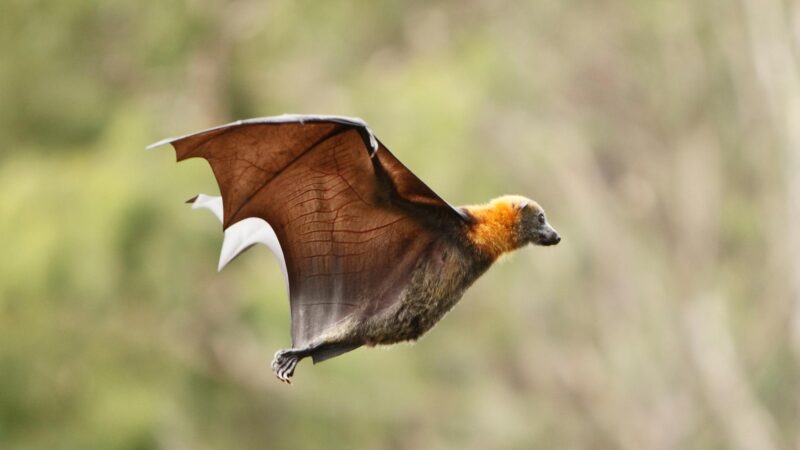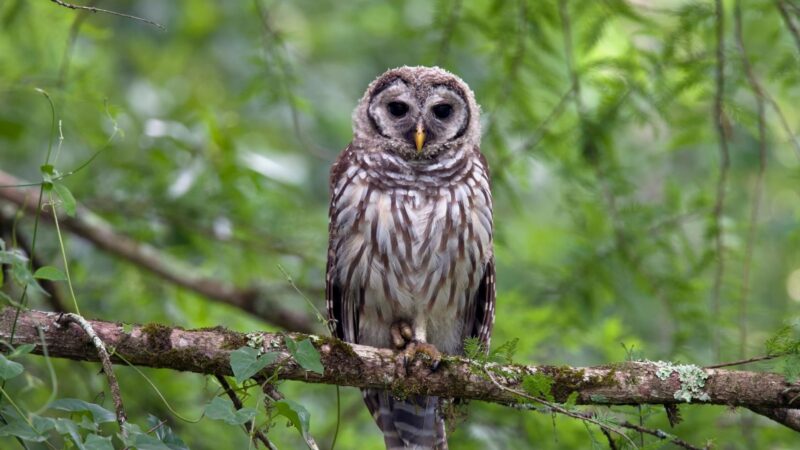Foxes are fascinating creatures with impeccable hearing abilities that can reach up to 40 yards away.
This ability helps them detect prey that is hiding underground. These wild animals also have intriguing sleeping habits that will be further discussed in this guide.
Are foxes nocturnal? Foxes are nocturnal animals that love to hunt at night and sleep during the day. However, this can change based on where these wild dogs live, according to the National Parks and Wildlife Service. For instance, if they perceive the place as safe, the pack will hunt during daylight hours.
By reading this guide, you will be endowed with more knowledge about fox habits, behaviors, and habitats. On top of that, we will share the sleeping habits of some of the fox species, so make sure you read on!
Table of Contents
Foxes Nocturnal Habits | A Closer Look

Foxes are mainly nocturnal animals that hunt at night and sleep most of the day. These animals can also be crepuscular—going out during twilight hours and at sundown.
Nocturnal Fox Behavior
Foxes are quite mysterious creatures with their distinct nocturnal habits. They are usually solitary and mostly prefer to stick to themselves.
These wild animals love sleeping during the day and hunting when it’s nighttime. They communicate with one another primarily by using scent and sound, which is very helpful since they are nocturnal creatures.
On top of that, foxes are omnivore creatures, which means they feed on both plants and animals. Since these wild animals primarily go out at night, they mostly rely on their sharp sense of smell to recognize roots, berries, grubs, and prey such as rodents and birds.
Foxes are also scavenger animals that usually make only one to two kills per week, making them look lean and slim.
Fox Dens and Habitats
The dens and habitats of foxes are usually semi-complex built in the ground. They also live in deserted burrows of other animals and even temporarily steal a lair or other animals when caught in a storm.
What Kinds of Foxes Are Nocturnal?
Are Red Foxes Nocturnal?

Red foxes are nocturnal beings but tend to be crepuscular when cloudy. These animals usually sleep in low areas or near the bush and own burrows.
Red foxes mostly hunt during night hours due to their nocturnal nature, but they sometimes go out during the day.
Are Fennec Foxes Nocturnal?

Fennec foxes are nocturnal but have their distinct sleeping behaviors than other foxes. These fox species usually reside in the desert, where the temperatures can get incredibly hot.
For such reason, fennec foxes typically stay in the den the rest of the day, sleeping. When the temperature gets cooler during nighttime, these foxes go out and hunt for prey.
Are Arctic Foxes Nocturnal?

Arctic foxes are primarily nocturnal creatures. However, these wild dogs also do light activities during the day, especially during the end of August. This is when Arctic foxes leave their birthing burrows to hunt from dawn to sundown.
During summer, the Arctic sun usually shines for 24 hours. Given that situation, the Arctic foxes continue to look for prey even during daylight hours.
Are Flying Foxes Nocturnal?

Flying foxes are nocturnal species and are arboreal forest inhabitants that rest during the day by dangling upside down from the tree’s high branches. These animals are highly sociable, winged mammals that live in colonies.
These foxes have excellent night vision, allowing them to navigate without any difficulty during nighttime.
Are Gray Foxes Nocturnal?

Gray foxes are the most common yet very evasive nocturnal foxes. These foxes can also sometimes be seen foraging during the day, but this is quite rare.
Are There Dangers Waiting for Foxes in the Night?
Foxes have several strong predators that are also nocturnal creatures, such as mountain lions, coyotes, wolves, etc. These natural enemies await for the foxes to go out and hunt so that they can hunt the unsuspecting foxes instead.
Other Nocturnal Predators and Enemies of the Fox
Foxes have several predators, and these include:
Bobcats

Bobcats are highly nocturnal and elusive animals. So, you may spot them frequently. These wild cats roam throughout North America and live in diverse habitats such as swamps, forests, deserts, and even suburban areas.
These cats are carnivores and eat many types of small animals, such as owls, hawks, raccoons, and even foxes.
While it’s rare for bobcats and foxes to cross paths, bobcats also hunt at sundown, putting them a bit closer to the social and hunting habits of foxes.
Coyotes

Coyotes are not strictly nocturnal, but they are among the natural enemies of foxes. These animals can be seen during the day but are typically more active at night.
For the most part, foxes usually stay away from coyotes’ territories since these animals are highly territorial and can get rabid and kill at will when seeing foxes.
Owls

Owls are nocturnal creatures, just like foxes. So, it’s not surprising that they are among the most notable predators of foxes.
These birds use their sharp talons to grab their prey and strike hard and fast. However, it’s best to know that owls can also get preyed on by foxes since these animals can jump on and catch owls with their sharp claws and teeth.
Mountain Lions

The mountain lions are among the big cats that preyed on foxes. These wild animals are nocturnal hunters and move around every night. Lions can quickly kill a fox and eat them savagely.
Wolves

Wolves are the apex, nocturnal hunters known to prey on foxes. These animals hunt in packs and are very opportunistic.
They usually target larger animals such as bison, elk, deer, and moose, but will also go for smaller animals like foxes when they don’t have any kill.
Wolves are usually vicious and sometimes share traits with foxes, but this doesn’t stop these canids from eating foxes.
Related: What Eats a Fox? | 9 Fox Predators
Frequently Asked Questions
Where Do Foxes Go During the Day?
During the day, foxes usually go in the lower branches of a tree, under bushes, or in a garden shed to rest or sleep the entire day. This allows them to be concealed from the predators that are lurking, waiting to have their chance to attack.
What Time of Day Are Foxes Most Active?
Foxes are mainly nocturnal creatures. However, they tend to be crepuscular and diurnal, which means they tend to be active during dusk, dawn, and even during the daytime. Nonetheless, most foxes spend the rest of the day sleeping and start being most active at night.
Is It Normal to See Foxes During the Day?
It’s not unusual for foxes to be out during the day since most of these animals have the tendency to be crepuscular and diurnal. These animals also prey on chipmunks, squirrels, birds, and other animals that are only active during the day whenever they feel like eating or hunting.
Are Foxes Active During the Day?
Foxes can be active at almost any time of the day but mostly hunt the most during dusk and dawn. Also, it’s not rare for them to be spotted during daylight hours since they have the tendency to be diurnal. They stay active all year round and never hibernate.
Do Foxes Sleep in Their Dens?
Foxes do not sleep in their dens but only close to them or near brush. These animals only build their dens for the primary purpose of raising pups and not for sleeping.
Are Foxes Diurnal?
Foxes can be diurnal creatures, which means they can be active during daylight. For instance, Tibetan foxes usually hunt during the day instead of in the evening to capture their desired meal.
Meanwhile, Arctic foxes are not strictly diurnal or nocturnal since they can be active at any given time.
Do Foxes Hunt at Night?
Foxes are predominantly nocturnal creatures, which means they mostly hunt at night rather than any time of day. These wild animals usually spend their daylight sleeping or resting under bushes or on the lower tree branches.
Will a Fox Attack You at Night?
Foxes don’t usually attack humans at night or even during the day. In fact, they usually avoid humans for fear of being killed.
It’s been reported that humans are among the top predators of foxes, so it’s not surprising if they evade even slight human interaction. However, it’s best to note that these are still wild animals and will attack when threatened or provoked.
So, it’s best to leave these animals alone and never bother them in any way.
Related: 13 Facts About Foxes You May Not Know | Information and Facts
Summary
Foxes are mostly nocturnal wild animals. However, they have the tendency to be crepuscular and diurnal, making them active during dawn and daylight hours.
List of Sources
Sierra Nevada Red Fox fact sheet. (2010). Forest Service – U.S. Department of Agriculture.
Learn about foxes. Commonwealth of Massachusetts.
Vulpes vulpes. (2015). The Pennsylvania State University.
